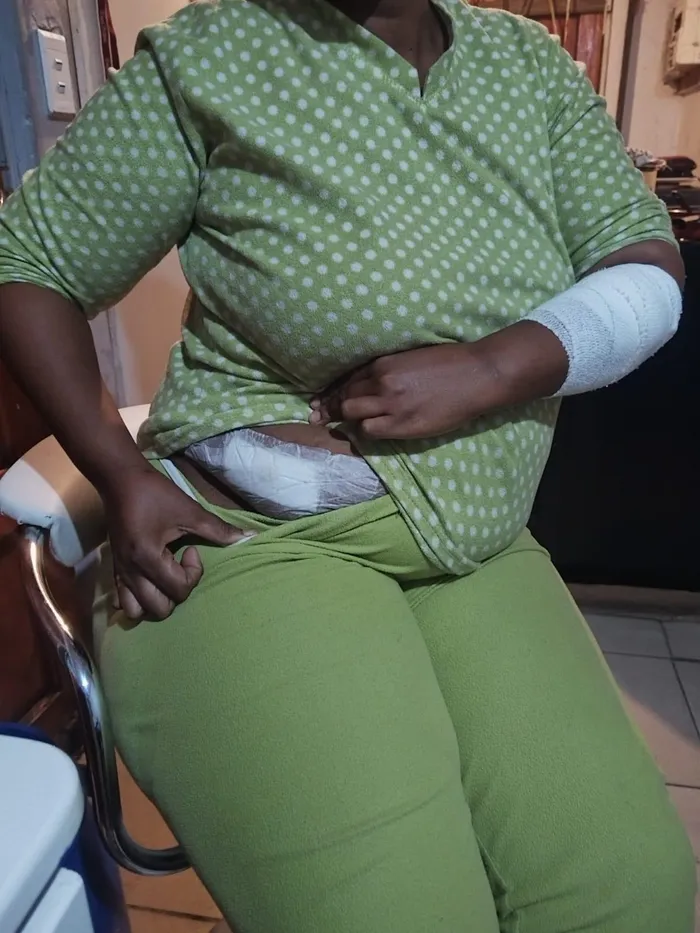Nyanga woman speaks up about domestic violence

Abuse Nomonde showing burns that she received when his ex-partner poured hot water over her at her Nyanga home.
Image: Phiri Cawe
Ending an unsafe relationship for a Nyanga woman did not end the abuse from her ex-partner; instead, it plunged her into deeper misery.
Just a fortnight ago, Nomonde, who fears using her real name for the sake of her children, was subjected to a brutal act when her former partner poured hot water over her at her home in Nyanga. The severe burns on her back and arm serve as a painful reminder of a love turned toxic.
After 27 years with the father of her six children, Nomonde finally chose to leave in August last year, recognising the toll the abuse was taking on her mental health and that of her children.
Despite her departure, her ex-partner has seemingly intensified his efforts to control and torment her.
“I left him because I had absolutely had enough. But I have never stopped being abused relentlessly by him,” she recounted, detailing an instance where he harassed her at her workplace, intimidating her in front of colleagues.
Nomonde described her ex-partner as a “pervert abuser” who has managed to mask his violent tendencies and is a respected member of the community.
“Now that he is arrested, I am hopeful that he will not bother me again,” she said, pleading for him to cease stalking her and to respect her space — for her children’s sake, she added, “I will not stop him from seeing his children.”
Dumisani Qwebe, the Nyanga CPF chairperson, expressed his dismay over the claims about one of their members.
“Gender-based violence has no place in the area," he asserted, making a rallying call to men to protect women and children.
“We want a society free from violence. We urge those who are suffering to speak out.”
Nyanga police spokesperson Colonel Wynad Muller confirmed that a case had been opened. “We are aware about the case and police have arrested the man,” he said.
Meanwhile, advocacy group Sisonke National Movement has reported that intimate partner violence remains deeply entrenched in communities across South Africa, with many cases going unresolved.
Yonela Sinqu, the communication officer for the organisation, lamented the pervasive nature of such violence and the subsequent societal neglect of victims.
“Once a person feels unsafe, they must report to the police and consider applying for a protection order,” she advised, underscoring the importance of not dropping charges against an abuser, as that could lead to dire consequences.
Ms Sinqu highlighted a harrowing trend where abusers may offer money to victims to retract charges, only for the cycle of violence to perpetuate.
“Women should never allow that to happen,” she said.